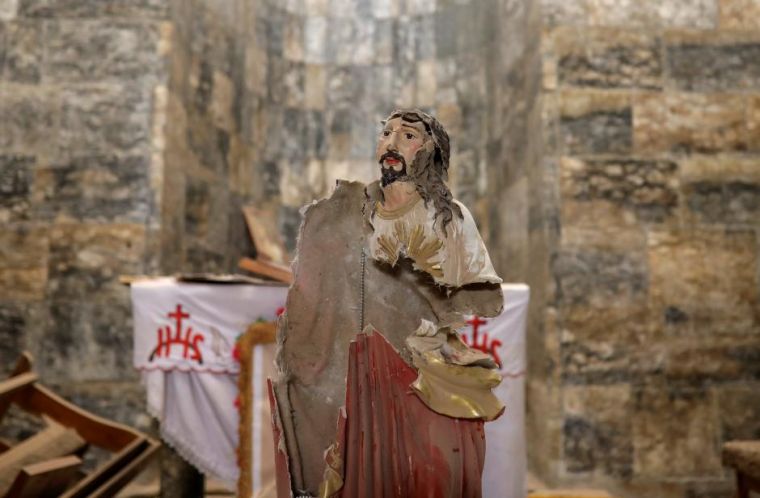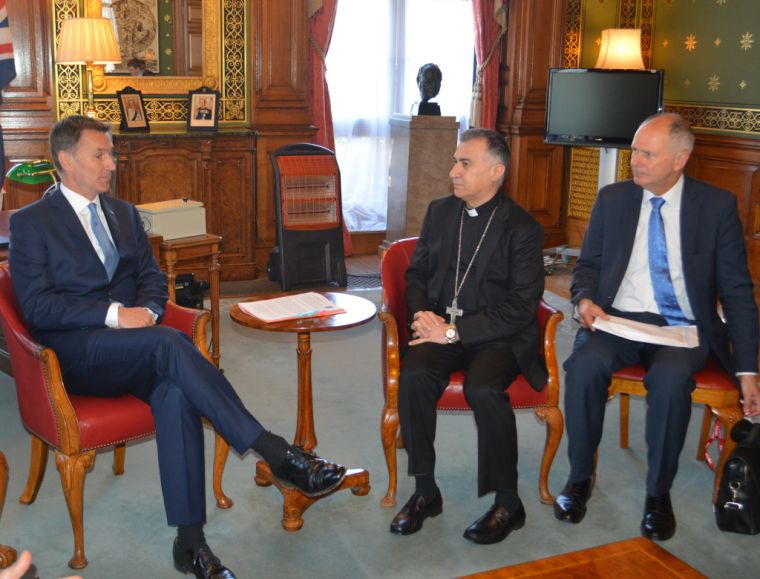Christianity in Iraq is 'perilously close to extinction', says Archbishop

An Iraqi Archbishop has pleaded with Britain's Church and political leaders to do more to save the Christian community in Iraq from being wiped out.
At an address in London, the Archbishop of Irbil, the Rt Rev Bashar Warda warned that Christians in Iraq face extinction after seeing a dramatic fall in numbers from around 1.5 million at the end of Saddam Hussein's reign in 2003, to just 250,000 today.
The Archbishop said that the prospects for those who have remained in the country were not good.
"Christianity in Iraq, one of the oldest Churches, if not the oldest Church in the world, is perilously close to extinction. Those of us who remain must be ready to face martyrdom," he said.
Christians have had a presence in Iraq for at least 1,400 years but after the Islamic State began its onslaught in 2014, they and other minority communities came under intense persecution.
The Archbishop said that their "tormentors" had sought "to wipe out our history and destroy our future".
"In Iraq there is no redress for those who have lost properties, homes and businesses. Tens of thousands of Christians have nothing to show for their life's work, for generations of work, in places where their families have lived, maybe, for thousands of years," he said.
Although ISIS has been steadily pushed back, many homes and churches have been destroyed. The thousands who fled have been reluctant to come back because of concerns around unemployment and further instability or persecution.

The Archbishop criticised Christian leaders in Britain over their response to the crisis, suggesting they were too afraid to condemn extremism because of "political correctness" and accusations of Islamophobia.
"Will you continue to condone this never-ending, organised persecution against us?" he said. "When the next wave of violence begins to hit us, will anyone on your campuses hold demonstrations and carry signs that say 'We are all Christians'?"
Archbishop Warda said he feared that silence and inaction would lead to the end of Christianity in Iraq.
"Friends, we may be facing our end in the land of our ancestors. We acknowledge this. In our end, the entire world faces a moment of truth," he said.
"Will a peaceful and innocent people be allowed to be persecuted and eliminated because of their faith? And, for the sake of not wanting to speak the truth to the persecutors, will the world be complicit in our elimination?"
Earlier in the week, the Archbishop met with UK Foreign Secretary Jeremy Hunt to call upon the British Government to provide urgent help to the Christian community in Iraq.
During the meeting, the Archbishop urged the Foreign Secretary to put diplomatic pressure on the Iraqi government to improve security and end entrenched discrimination against Christians and other minorities.
READ MORE: Level of persecution against Christians coming close to 'genocide', says report
He also thanked Mr Hunt for his review into the global persecution of Christians, saying it was "unprecedented".
An interim report from the review concluded that persecution against Christians worldwide is coming close to "genocide". The full results are due out in the summer.
The meeting between the Archbishop and Mr Hunt was facilitated by Aid to the Church in Need UK, which has rebuilt 2,000 homes in the Nineveh Plains for Christians.
At another meeting with MPs in the House of Commons this week, the Archbishop said the Iraqi government had failed to provide any help to the Christian community, and that in Europe, only Hungary had matched words with actions.
READ MORE: Iraq church leader pleads with UK Government to help rebuild devastated Christian town
"Rebuilding infrastructure is urgently needed but the Government in Iraq has said it has no money. They have told us 'You will have to rely on your friends'. But this surely should be the task of government," he said.
"When Daesh invaded, our people left with nothing. But thanks be to God and thanks to ACN they were able to survive.
"The help of ACN and other charities – through prayers and generous gifts – have reminded us that we have not been forgotten. This help has made a huge impact."











